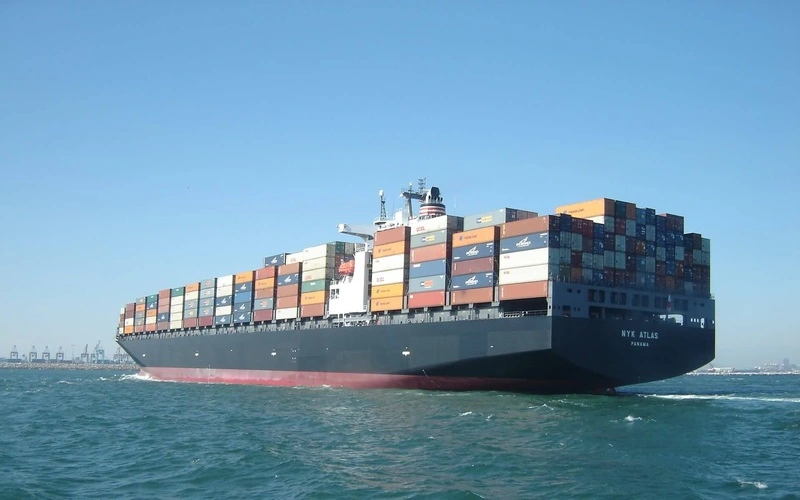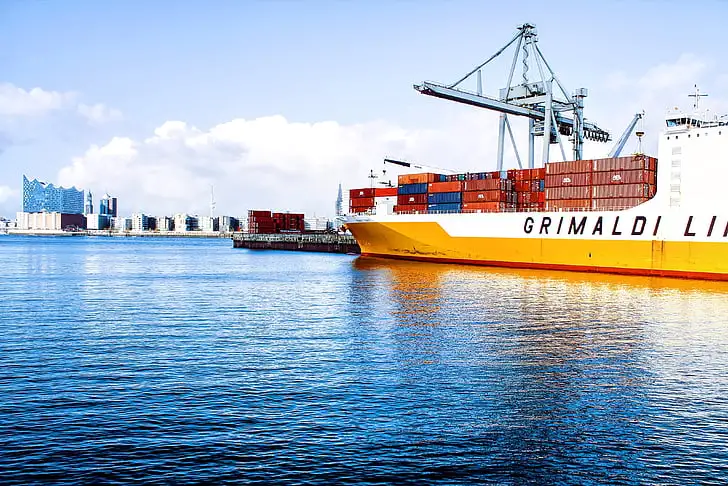What is Cross-Border Ecommerce?
E-commerce, or electronic commerce, has emerged as a major global economic model. The rapid growth of the internet has rendered online buying and selling more accessible to a wider audience, and one approach to taking a business global is through cross-border e-commerce.
The online sale of goods or services from a business in one nation to customers in another is known as cross-border e-commerce. This type of e-commerce presents fantastic chances for businesses to expand internationally, connect with more customers, and boost revenue.
Read also: How to Organize a Warehouse: An Easy 7-Step Guide to Organize Your Warehouse

Cross-Border E-commerce: Challenges, Advantages, Disadvantages, and Opportunities | Image source: PxHere
Top 8 Cross-Border E-commerce Challenges
Customs and taxes
However, cross-border e-commerce has particular obstacles that businesses must be prepared to confront. The problem of international customs and taxes is one of the most significant challenges. To stay out of trouble financially and legally, businesses must be informed of the laws and regulations in each country.
Cultural differences
It’s also critical to take linguistic and cultural variances into account. To effectively engage with foreign clients, businesses must modify their websites and marketing campaigns for each country or region they wish to expand into.
Logistics Challenges
Another issue is logistics and delivery times. To guarantee that their items arrive on schedule and in acceptable shape, businesses must carefully select their shipping partners and establish an effective distribution infrastructure.
Nevertheless, despite these difficulties, cross-border e-commerce continues to be a desirable option for businesses seeking to grow internationally. Geographical barriers have been dismantled by the internet, making it simpler than ever to reach a global audience.
Market research
Businesses must spend money on market research to better understand the requirements and preferences of customers in other nations if they want to maximize the benefits of cross-border e-commerce. It’s critical to modify the offerings of goods and services to suit each market and allocate funds for focused promotion and marketing.
Coin Conversion
Currency conversion is a major challenge in cross-border e-commerce. Since transactions take place in various nations using various currencies, conversion to the local currency of the buyer or seller is required. Payment processors, banks, or companies that offer currency conversion services can all help with this.
However, depending on the currency conversion service utilized, the conversion amount could differ considerably. Some businesses could wind up paying more in fees than necessary, which can have a big effect on the company’s bottom line and overall profitability.
Exchange rates
Foreign exchange rates present another challenge for cross-border e-commerce. Central banks of many nations determine exchange rates, which are subject to daily fluctuations. This means that, depending on when a transaction is completed, its value may vary significantly.
Furthermore, extra costs like the transaction fee and currency conversion fee could be included in exchange rates. These costs can add up and have an impact on both the customer’s final product pricing and the company’s profit margin.
Currency risk
A major concern for many businesses engaged in international e-commerce is currency risk. The risk of financial loss as a result of exchange rate variations is known as currency risk.
For instance, if a business operates in CAD but sells its goods in USD, a decline in the CAD’s value relative to the dollar could result in a substantial loss for the business. This can provide particular difficulties for small enterprises with constrained funding.
Regulatory complexity in different countries
Cross-border transactions are subject to a number of laws and rules. For instance, customs and tax legislation may differ from nation to nation. This may complicate the process of paying taxes and exporting goods overseas.
Furthermore, trade sanctions may apply to some cross-border transactions, which might complicate matters further. To prevent financial and legal issues, businesses engaged in cross-border e-commerce must be informed about the rules and legislation of every nation in which they conduct business.
To sum up, cross-border e-commerce is a fun approach to growing your company across national boundaries, but it also comes with special difficulties that businesses need to be ready for. With careful market research, offer adaptation, investment in marketing, and an efficient logistics infrastructure, companies can make the most of this opportunity and reach new levels of success in e-commerce.
Customers mistrust
Customers’ mistrust of foreign purchases is one of the main obstacles to cross-border e-commerce. The security of their data and the delivery procedure are major concerns for many customers, and this can influence their decisions on buying. Companies need to concentrate on providing a dependable and positive purchasing experience, together with a safe payment method and guaranteed delivery, to overcome this obstacle.
What are the main advantages and disadvantages of cross-border E-commerce?
Advantages of cross-border E-commerce:
- Increased market reach
- Possibility to explore new niches
- Revenue diversification
- Reduction of production and storage costs in some cases
- Possibility to offer competitive prices
- Possibility to strengthen the brand globally
- Access to new technologies and innovations

Cross-Border E-commerce: Challenges, Advantages, Disadvantages, and Opportunities | Image source: PickPik
Disadvantages of cross-border E-commerce:
- Difficulty adapting to different cultures and regulations
- Possible customs and tax barriers
- Difficulty managing inventory and logistics
- Difficulty offering customer support in different languages and time zones
- Possible communication problems due to language barrier
- Possibility of increased shipping and logistics costs
- Possibility of competing with more established local companies
These are only a few subjects that could be covered in an article discussing the benefits and drawbacks of international e-commerce. It is crucial to emphasize that these elements could change depending on the kind of product, the destination nation, and the company’s chosen approach.
Cross-border E-commerce Opportunities
Despite the challenges, cross-border e-commerce presents numerous chances for companies to grow. Businesses can enhance sales and profitability by concentrating on markets with the most potential for growth. Companies can diversify their businesses and lower the danger of depending solely on one market or nation by going global.
Reaching out to new clients worldwide is one of the primary benefits of cross-border e-commerce. Businesses can capitalize on the demand for their products in developing areas, where there may be less competition than in their home markets, by expanding their sales internationally. Sales and revenue may rise significantly as a result of this.
Moreover, lowering production costs may be achieved through international e-commerce. Businesses can benefit from lower labor costs, less expensive raw materials, and better production technologies in other nations. This could lower production costs and increase the competitiveness of the business.
Please contact us if you need any assistance with cross-border logistics to connect your customers overseas.


